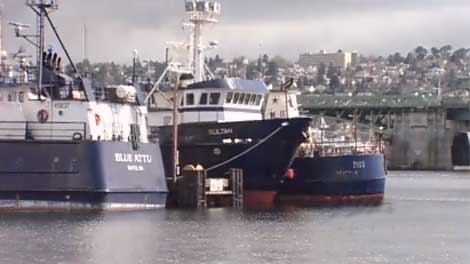SEATTLE - It remainsthe worst American fishing disaster in some 60 years, with none of the 15 crewmen surviving.
Craig Cross remembers the day the Seattle-based Arctic Rose went down deep inthe Bering Sea onApril 2, 2001.
It's a tragedy, he said.
The very next year an explosion on one of Cross's boats, the Galaxy, sank it -- killingthree more fishermen -18 men dead in 18 months. Cross says at that point, something had to change.
People here either have a relative or know someone that's fishing, and so it becomes personal to everybody, he said.
In an ambitious move on a fishingindustry that's been resistant to change for decades, the Coast Guard implemented sweeping safety reforms starting in 2006. They include regular structural inspections of nearly the entire headand gut fleet for Washington and Alaska, better fire and lifesaving equipment, and more safety training for crews.
Coast Guard officials say there's no comparison between the oversight at the time of the Arctic Rose and now.
That's not saying that something still can't go wrong, or you can't lose a boat, said CDRChris Woodley of the USCG in Seattle. But there is considerably more oversight than there ever was.
It's expensive work -- up to a million dollars per boat -- and right now none of it is mandatory. The Coast Guard, however, says it hasgottennearly 100percentcompliance from the 50 boats in the Northwest fleet.
Operatorslike Bill Orr of Seattle's Iquique Fisheries say the financial cost doesn't compare to the lives lost at sea.
It's certainly been costly, but that's the cost of doing business the right way, he said.
While compliance is voluntary now, it becomes mandatory nationwide in 2020.
It's a business that's still one of the most dangerous in the world, but one that'sgetting safer for the next generation of those who go to sea.
Craig Cross puts it this way: I would put my son or daughter on one of these vessels now. Before, maybe not.


